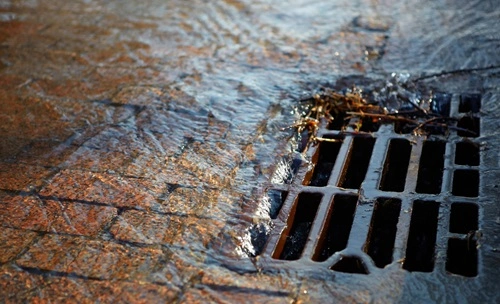Yes, it is generally illegal to enter a storm drain in the United States without proper authorization. Storm drains are typically considered public infrastructure, and entering them can lead to legal, safety, and environmental issues. Unauthorized entry is prohibited under trespassing, public safety, or vandalism laws in many jurisdictions.
Legal Framework Around Storm Drain Entry
- Trespassing Laws
- Storm drains are often part of municipal or state-owned infrastructure, making unauthorized access a form of trespassing.
- Trespassing laws vary by state but typically prohibit entry onto government or private property without permission.
- Public Safety Regulations
- Entering a storm drain poses significant risks, including drowning, exposure to toxic substances, and structural collapses. Laws often prohibit such actions to protect public safety.
- Municipal codes frequently include specific provisions against accessing storm drains or other water management systems.
- Vandalism and Infrastructure Protection
- Damaging storm drains or interfering with their operation can result in charges of vandalism or destruction of public property.
- These charges can escalate to felonies if the damage disrupts the water management system.
Environmental Considerations
- Pollution and Contamination
- Many storm drains feed directly into natural water systems, such as rivers, lakes, or the ocean. Tampering with these systems or leaving waste in them can violate environmental laws.
- For example, the Clean Water Act prohibits actions that could pollute waterways, including improper use of storm drains.
- Wildlife and Ecosystem Impacts
- Storm drains often house fragile ecosystems. Interfering with these areas could result in fines or penalties under state or federal environmental protection laws.
Reasons for Prohibiting Entry Into Storm Drains
- Safety Risks
- Storm drains can fill rapidly during rainstorms, creating a drowning hazard.
- They often contain sharp objects, hazardous chemicals, and uneven surfaces.
- Public Health Concerns
- Storm drains frequently carry untreated runoff, which may contain bacteria, sewage, or toxic substances harmful to human health.
- Infrastructure Damage
- Unauthorized access can lead to damage or blockages, compromising the drain’s ability to manage stormwater effectively.
- Repairs for such damage can be costly, burdening taxpayers.
Penalties for Unauthorized Access
- Fines
- Violators can face fines ranging from a few hundred to several thousand dollars, depending on local laws and the severity of the offense.
- Criminal Charges
- Charges may include trespassing, vandalism, or endangering public safety.
- Repeat offenders or those causing significant damage could face jail time or felony charges.
- Civil Liability
- Individuals could also be held liable for any damages caused by their actions, including costs for repairs or environmental cleanup.
Authorized Entry Into Storm Drains
- Utility and Maintenance Workers
- Authorized personnel, such as municipal workers, may enter storm drains for maintenance or inspections.
- These workers must follow strict safety protocols and possess permits where required.
- Scientific Research and Environmental Monitoring
- Researchers studying ecosystems or water quality may access storm drains with appropriate permissions and safety measures.
- Special Events or Activities
- In rare cases, municipalities might allow controlled access for community events or educational purposes, but this requires prior approval.
Common FAQs
Q1. Can I be arrested for entering a storm drain?
Ans: Yes, entering a storm drain without authorization can lead to arrest, fines, or other legal consequences, depending on local laws.
Q2. Are storm drains public property?
Ans: Yes, storm drains are typically owned and maintained by local governments, making unauthorized access a form of trespassing.
Q3. What if I drop something valuable into a storm drain?
Ans: Contact local authorities or the public works department. Do not attempt to retrieve it yourself, as entering a storm drain could be illegal and dangerous.
Q4. Are there exceptions for kids exploring storm drains?
Ans: No, minors found in storm drains are still subject to the same laws. Parents or guardians may also be held responsible for allowing or failing to prevent such actions.
Q5. What laws protect storm drains?
Ans: Local trespassing and public safety laws, as well as federal environmental laws like the Clean Water Act, protect storm drains.
Conclusion
Entering a storm drain without authorization is both illegal and dangerous. The laws surrounding storm drains aim to protect public safety, infrastructure, and the environment. Individuals should respect these regulations and report any issues with storm drains to local authorities instead of taking matters into their own hands.


